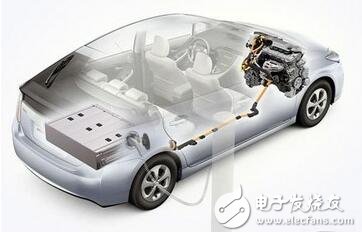Beijing time on October 31 morning news, Toyota engineers are studying lithium battery technology. Toyota can now pack more energy safely without additional cost. This means that Toyota can better develop the fast-growing electric vehicle market.
Although rival Tesla and Nissan began researching lithium battery technology nearly 10 years ago, Toyota has not acted in this area for cost, size and safety considerations. The stability of the lithium battery may be problematic. Recently, the Samsung Galaxy Note 7 smartphone was forced to stop selling due to a battery fire.
The addition of Toyota is good for the development of lithium battery technology. Toyota has not invested in the development of all-electric vehicles, but has invested in hydrogen-fueled vehicles.

Toyota said that the upcoming hybrid version of the Prius Prime will use lithium batteries. Before the gasoline engine started working, the battery power that was charged was enough to make the car reach a speed of about 60 kilometers per hour.
Many electric vehicles use nickel-cobalt-manganese batteries. These batteries have more energy storage and faster charging and are considered safer than lithium batteries. However, if the design, manufacturing, and control are defective, these batteries may still experience a superheated fire.
Koji Toyoshima, Prius's chief engineer, said that developing a lithium-ion battery that can be used safely and reliably for 10 years or hundreds of thousands of kilometers is a high requirement. Toyota has taken additional safety measures for the battery pack, and safety is the key to Toyota's consideration.
In the traditional Prius model, Toyota uses a more mature nickel metal battery. However, since the introduction of the first generation of plug-in hybrid Prius in 2009, Toyota has begun to try lithium battery technology. The first electric vehicles that used lithium batteries, including the Tesla Roadster and the Nissan Leaf, were just introduced to the mass market.
Toyota's confidence in battery safety and reliability comes from the optimization of control technology. This technology accurately monitors the temperature and other conditions of the 95 cells in the battery pack.
At the same time, Toyota is also reducing the size of each cell and shortening the distance between the positive and negative poles of the cell. This doubled the battery capacity, but the size of the battery pack increased by only 2/3 and the weight increased by 50%.
Battery industry experts point out that the price of lithium battery cells will drop by about 60% in five years, reaching about $145 per kWh. Mass production will reduce the cost of lithium batteries. (Viking)
Dragon Crown Medical Co., Ltd. , https://www.dragoncrownmed.com